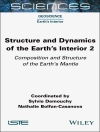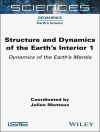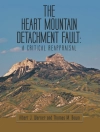Published by the American Geophysical Union as part of the Geophysical Monograph Series, Volume 196.
Extreme Events and Natural Hazards: The Complexity Perspective examines recent developments in complexity science that provide a new approach to understanding extreme events. This understanding is critical to the development of strategies for the prediction of natural hazards and mitigation of their adverse consequences. The volume is a comprehensive collection of current developments in the understanding of extreme events. The following critical areas are highlighted: understanding extreme events, natural hazard prediction and development of mitigation strategies, recent developments in complexity science, global change and how it relates to extreme events, and policy sciences and perspective. With its overarching theme, Extreme Events and Natural Hazards will be of interest and relevance to scientists interested in nonlinear geophysics, natural hazards, atmospheric science, hydrology, oceanography, tectonics, and space weather.
Over de auteur
A. Surjalal Sharma University of Maryland, College Park | UMD, UMCP, University of Maryland College Park · Goddard Planetary Heliophysics Institute. His main interests are Space Plasma Physics and Nonlinear Dynamics. Current efforts include magnetospheric physics, comets and stellar variability. Previously he has contributed to the theories of laboratory plasma devices at Cornell University, Physical Research Laboratory, Ahmedabad, and Institute for Plasma Research, Gandhinagar, India.











